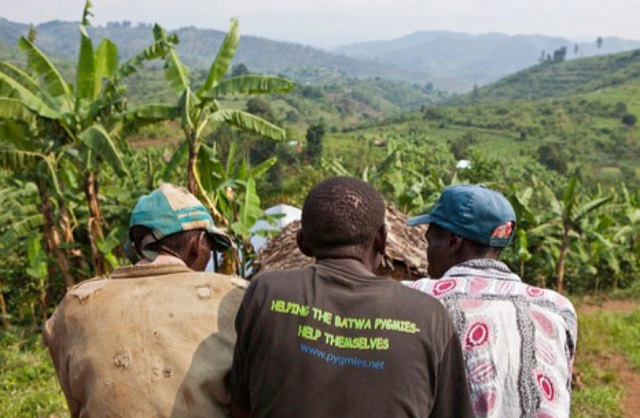
One of the most important ways to support adaptation is to listen to the affected communities and learn from their experience and needs
| THE INDEPENDENT | Uganda’s Batwa community are highly vulnerable; they don’t own much land and often don’t have access to capital. They were one of the earliest residents of the Equatorial Forest – consisting of Uganda, Burundi, Rwanda and Democratic Republic of Congo – and are defined by their unique history of forest-dwelling and hunter-gatherer lifestyle.
Today, the 6,200 Batwa living in Uganda are mostly landless labourers. They often live as squatters on remote, hilly and isolated locations because they’ve been progressively marginalised and forced off their ancestral land. This started in the 1930s – when the British colonial government declared Uganda’s forests as “reserves” – and, later on, when some forested areas were cleared for agriculture.
The Batwa have already started to experience the impacts of climate change – including variability in rainfall patterns, increased cases of floods and land erosion. These have caused food insecurity and increased incidence of diseases – such as malaria, malnutrition, stomach disorders and respiratory diseases.
But, as they’re marginalised, they’ve not able to adapt to this changing climate. For instance, they can’t afford to buy food to compensate for low agricultural output or building materials to construct resilient housing.
Because of this, it is essential that the Batwa are supported in their efforts to adapt to climate change.
We assessed how their poverty and marginalisation affect their ability to adapt to climate change. We also examined whether their needs and concerns were incorporated in the design and implementation of adaptation responses.
One of the most important ways to support adaptation is to listen to the affected communities and learn from their experience and needs. Yet, our study showed that the Batwa lack voice, agency and influence in climate adaptation planning and actions.
As a result, they’re often not recognised or represented in the design and implementation of adaptation responses. This means the responses don’t meet their needs or realities.
Vulnerability to climate change
Our field research in Uganda consisted of interviews with a range of actors working on Batwa issues at the national, district and community levels. We also visited five Batwa communities in South-West Uganda and held focus group discussions with them.
We found that Batwa members felt excluded from the political processes in Uganda due to systemic and structural barriers. For instance, many of them don’t have national identification cards as they are not recognised as Ugandan citizens. They also lack access to education because of school fees. These factors limited their ability to influence national policies and participate in politics.
To address the challenges of climate change, Uganda implemented an adaptation agenda through a number of policy measures including the National Adaptation Plan and periodic National Development Plans. But the Batwa aren’t included meaningfully in the decision-making processes of these plans. This means that the interventions that target them are poorly designed and implemented.
For instance, rainwater catchment investments – in the form of household roof tanks or community tanks – only work for Batwa who live in permanent houses. These are the minority. Most Batwa are landless, live in temporary houses and won’t benefit at all.
In one area the Batwa were resettled on barren, steep slopes. Here they were expected to live and do farming. The Batwa weren’t involved in the decision-making processes that led to their resettlement in an area vulnerable to extreme weather events.
In another case, we found that a charity was distributing crop seeds to Batwa households who did not even have any farmland.
 The Independent Uganda: You get the Truth we Pay the Price
The Independent Uganda: You get the Truth we Pay the Price




If some one wishes expert view regarding blogging
and site-building afterward i advise him/her to go to see this blog, Keep
up the good work.